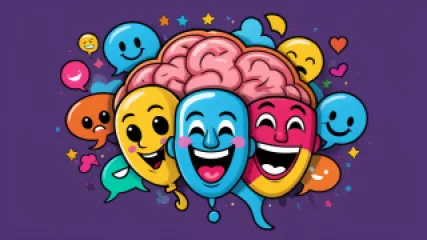Mastering the Psychology of Humor: A Step-by-Step Guide
Have you ever wondered why something is funny? What makes us laugh and why? The psychology of humor is a fascinating field that explores the cognitive, emotional, and social processes behind our laughter. Understanding the psychology of humor can not only help us appreciate jokes and comedy better but also provide insights into human behavior and mental health.
Introduction
In this step-by-step guide, we will delve into the world of humor psychology and explore how you can master the art of being funny. Whether you want to be the life of the party, improve your comedic skills, or simply understand the science behind laughter, this guide will equip you with the knowledge and techniques to harness the power of humor.
Section 1: The Science of Laughter
Understanding Humor Psychology
To begin our journey into the psychology of humor, it's important to understand what humor actually is and why it matters. Humor is a complex cognitive process that involves incongruity, surprise, and the resolution of tension. It is a universal aspect of human experience, found in every culture throughout history.
Key takeaway: Humor is a cognitive process involving incongruity and surprise.
The Benefits of Laughter
Laughter is not just a response to humor; it also has numerous psychological and physiological benefits. Laughing reduces stress, boosts mood, strengthens social bonds, and even improves immune function. Exploring the benefits of laughter can motivate us to incorporate more humor into our daily lives.
Key takeaway: Laughter has physical and psychological benefits.
Section 2: The Elements of Humor
The Anatomy of a Joke
What makes a joke funny? Understanding the components of a joke can help us deconstruct humor and analyze what makes it tick. From setup to punchline, jokes follow a specific structure that exploits incongruity, surprise, and clever wordplay.
Key takeaway: Jokes have a specific structure that exploits incongruity and surprise.
Types of Humor
Humor comes in various forms, each with its own style and audience appeal. From slapstick comedy to witty wordplay, understanding different types of humor can help us develop our comedic range and cater to diverse audiences.
Key takeaway: There are different types of humor with distinct styles and audience appeal.
Section 3: Cultivating Your Funny Bone
Developing a Comedic Mindset
Becoming funnier starts with adopting a comedic mindset. This involves embracing playfulness, finding joy in the absurd, and developing a sense of comedic timing. By cultivating a comedic mindset, we can unleash our creativity and find humor in everyday situations.
Key takeaway: Adopting a comedic mindset is the foundation of being funny.
Finding Your Comedy Style
Every comedian has their own unique style, and finding yours is essential for honing your comedic skills. Experiment with different comedic styles, such as observational humor, self-deprecating humor, or satire, to discover what resonates with your personality and sense of humor.
Key takeaway: Discovering your comedy style is crucial for developing your comedic voice.
Section 4: The Power of Delivery
Mastering Timing and Pace
Timing is everything in comedy. Mastering the art of comedic timing involves understanding pauses, pacing, and rhythm to maximize the impact of your jokes. By studying the delivery techniques of seasoned comedians, you can learn how to create comedic tension and deliver punchlines with precision.
Key takeaway: Comedy is all about timing and pace.
Body Language and Facial Expressions
In comedy, words are just one part of the equation. Your body language and facial expressions can enhance or undermine the humor of your performance. Learning how to use gestures, posture, and facial cues effectively can elevate your comedic presence and make your jokes more engaging.
Key takeaway: Non-verbal communication plays a crucial role in comedic delivery.
Section 5: Spreading Laughter and Joy
Humor in Everyday Life
Being funny isn't reserved for stand-up comedians. Incorporating humor into everyday interactions can improve relationships, diffuse tense situations, and boost overall well-being. Discover practical ways to infuse humor into your daily life to bring laughter and joy to yourself and those around you.
Key takeaway: Humor can enhance relationships and improve overall well-being.
The Healing Power of Laughter
Laughter has therapeutic benefits and can be used as a tool for mental health. Learn about the emerging field of comedic therapy and how laughter coaches are helping individuals cope with stress, anxiety, and depression through the power of humor.
Key takeaway: Laughter can be a powerful tool for mental health.
By mastering the psychology of humor, you can not only become a funnier person but also gain a deeper understanding of human behavior and mental health. Whether you aspire to be a comedian or simply want to bring more laughter into your life, this step-by-step guide has provided you with the knowledge and techniques to unlock the power of humor.






